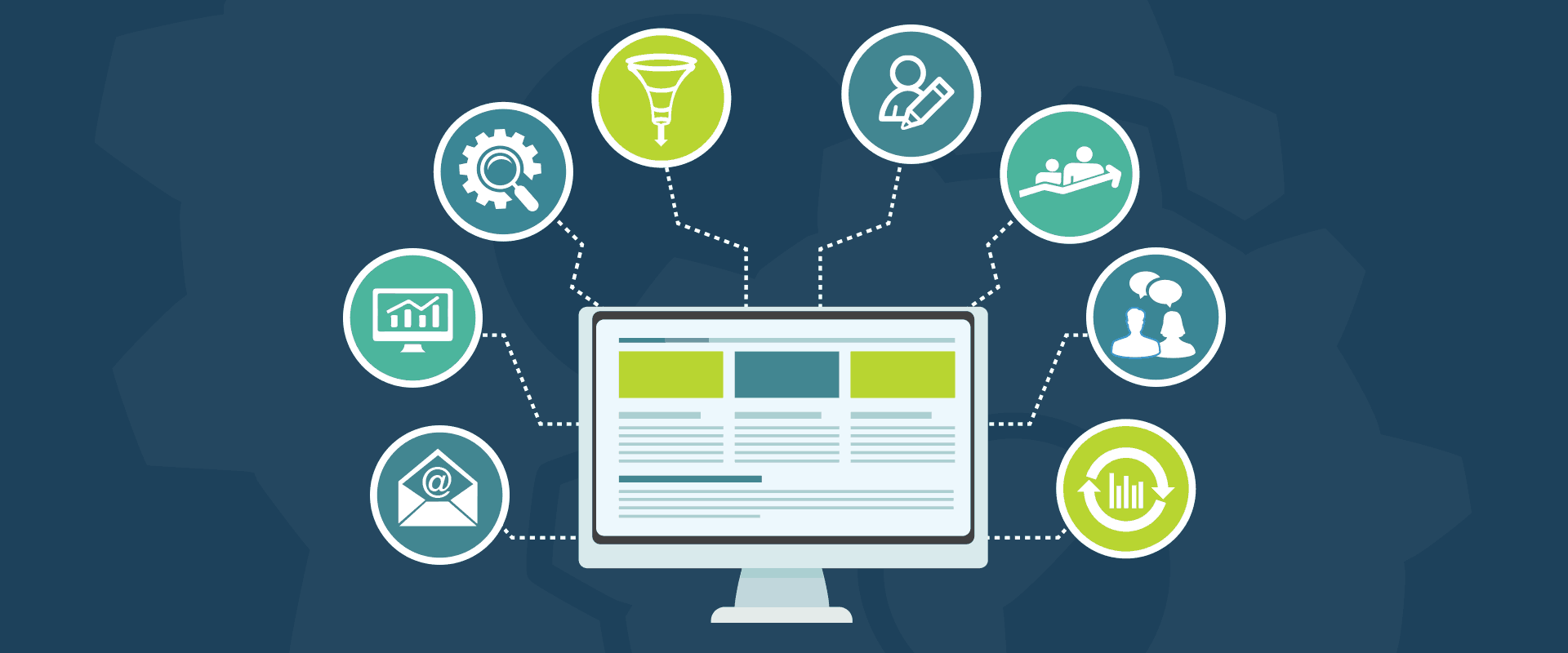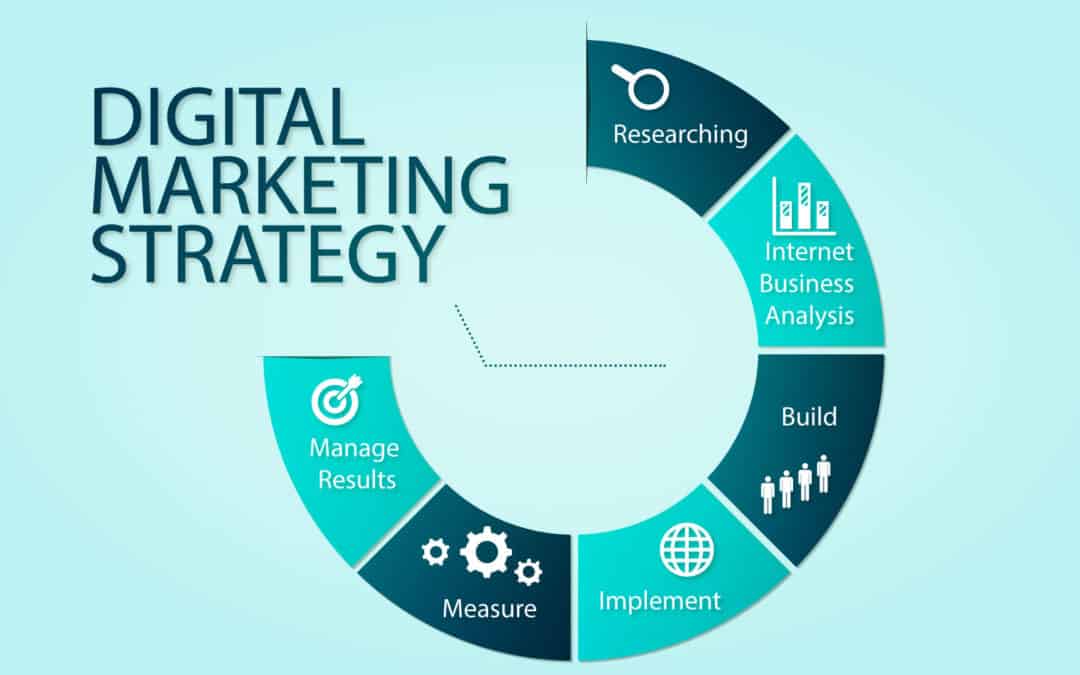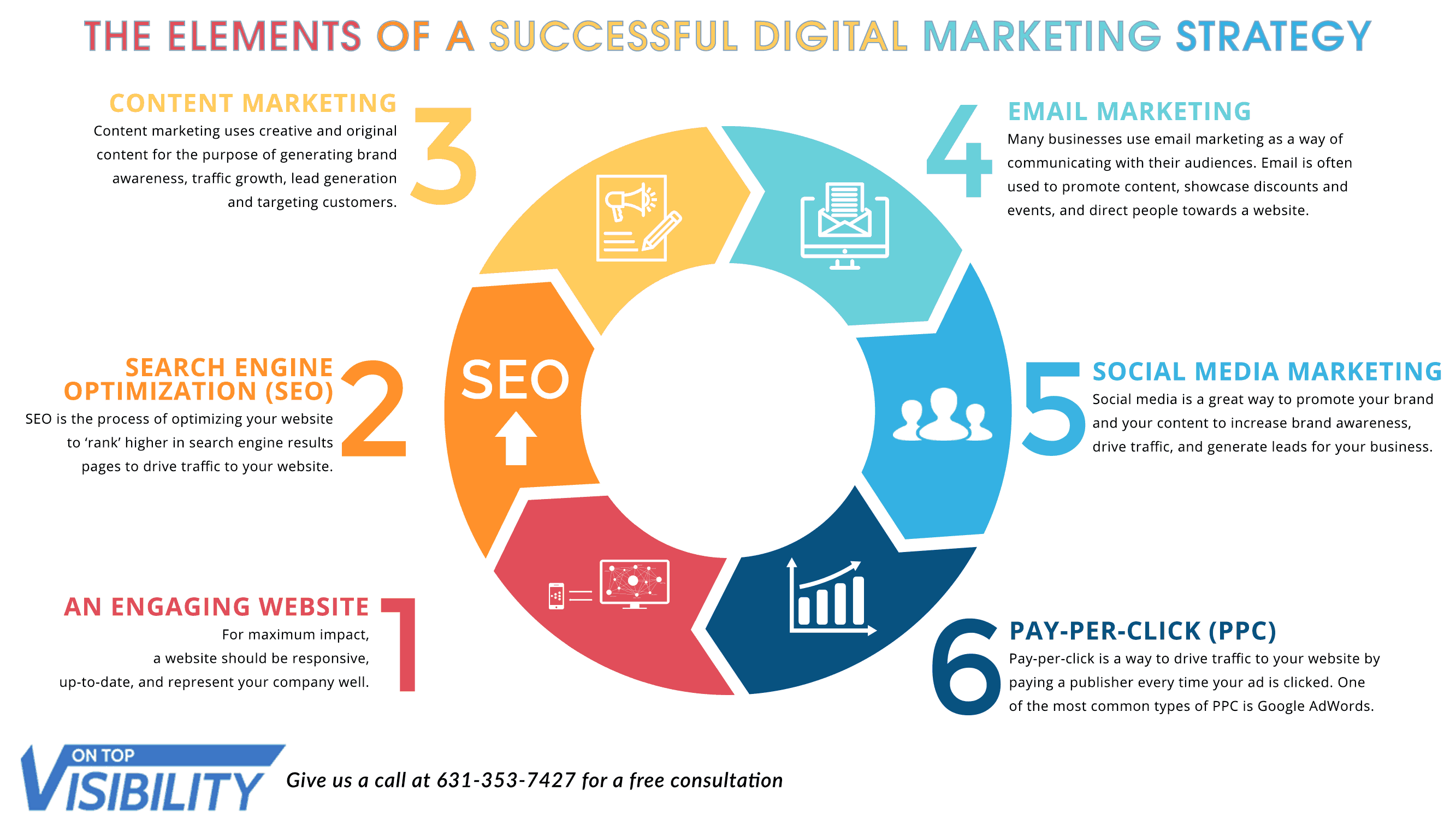What is a Digital Marketing Strategy?
A comprehensive marketing plan for your product should include market research, a clear and detailed description of your target market, an understanding of your product positioning and brand perception, competitive analysis, and a marketing strategy.
A marketing strategy is your organization’s path to achieving its targets for product sales and revenue. The purpose of developing a marketing strategy is to answer the question: “How will I find my ideal customers and motivate them to purchase my product?” An effective marketing strategy looks at the marketplace and identifies which marketing channels might be the best fit for your product – events, direct mail campaigns, street teams, coupons, billboards, partnerships, etc. Your strategy should identify specific tactics that will expose your product to your target customer and initiate the buying process.
Digital marketing strategy is a marketing strategy with a focus on digital channels. An effective digital marketing strategy can help your organization achieve annual or quarterly revenue and sales targets by generating leads and inbound opportunities. Digital marketing incorporates online channels such as social media, content marketing, pay-per-click advertising (PPC), search engine optimization, local search, email marketing and even through video-based content or paid endorsements from online personas.
Successful digital marketing strategy depends on understanding your ideal customer profile and developing specific plays and tactics to identify and target those customers through digital channels to generate leads and opportunities for your sales team.

Why is Digital Marketing Strategy Important?
Traditional advertising methods don’t seem to work as well as they used to in the digital age. Print, billboard, and radio or television advertisements do a poor job of targeting your ideal customer, and it can also be difficult to truly measure your return-on-investment. These advertisements methods are often expensive with high start-up costs.
Digital marketing has made it easier for more companies to find and access new markets and customers both locally and around the world. The key advantage of digital marketing is that businesses can reach a targeted audience in a way that is both cost-effective and easy to measure. This makes it easier for businesses to optimize conversions and ROI, getting the most value for their marketing budget.
Today’s customers expect to be able to find your business online and on social media. Regardless of where they are in the buying process, engaging with your customers through your digital marketing efforts can present your brand as the solution to their problem so they come to you when they’re ready to buy.

Components of an Effective Digital Marketing Strategy
An effective digital marketing strategy drives revenue by capturing prospects that fit your ideal customer profile and bringing them into your marketing funnel. Most successful strategies use more than one digital channel to generate new leads and opportunities. While some businesses focus heavily on one area, like social media marketing or creating promotional videos, the best approach is often an integrated one that uses multimedia content spread across channels to generate a stream of prospects from several sources. Let’s review some of the tools and channels that could be included in your digital marketing strategy.
Search Engine Optimization
Search Engine Optimization (SEO) is the marketing practice of optimizing key pages of your website to be ranked higher in the search engine result pages. The goal of SEO is that when somebody searches on Google for keywords related to your business, they’ll see your website or landing page listed among the top results and visit your page. The Google search algorithm uses over 200 unique indicators to evaluate and rank pages, and the process is not totally transparent. An experienced SEO expert can help you navigate the complexities of the Google ranking system.
Pay-per-Click Advertising
Meta Ads and Google Ads are two of the largest publicly available advertising platforms. For as little as a few dollars a day, you can advertise your business on either of these immensely popular technology platforms that receive billions of page views each day. In pay-per-click (PPC) advertising, your advertisement is presented to a prospective customer that searches for a related keyword and you’ll be charged each time a user interacts with your ad.
Local Search Marketing
If you do most of your business locally, there are specialized SEO techniques that help you rank more highly on Google for searches in your geographic area. You can enhance local search marketing registering with Google My Business and featuring your business on Google Maps.
Content Marketing
Content marketing is all about creating and publishing content to your website that positions you as an authority in your industry while providing genuine value to readers and funneling them towards your sales or contact page. Content on your website may also rank on search engines, bringing you a steady stream of free organic traffic for years to come.
Email Marketing
Sending emails that promote your products or services is known as e-mail marketing. The key to a successful e-mail marketing campaign is to build relationships with prospects that opt to join your e-mail list. You can create an e-mail opt-in form and feature it on your website or in an advertisement. You may even entice prospects to share their contact information with a free white paper download or another incentive. Today’s e-mail marketing tools make it easy to send personalized messages with individualized content that helps push prospects through your marketing funnel.
Social Media Marketing
Social media marketing uses mediums like Facebook, Instagram, Reddit, LinkedIn and other social platforms to engage with prospective customers and spread information about your products and brand. Heavily self-promotional social media marketing campaigns may be poorly received, but many companies have succeeded with social media marketing efforts that present their brand in a positive light that improves brand image and inspires loyalty.
Video Marketing
Video-based platforms like YouTube and Facebook have made video-based marketing an increasingly popular way of reaching prospective customers. According to one report, 87% of online marketers now use video content as part of their digital marketing strategy. On the consumer side, 45% of people watch at least an hour of videos on YouTube or Facebook each week and YouTube alone delivers over 500 million hours of video to viewers each day.

Directive Consulting: Digital Marketing Strategy Specialists
At Directive Consulting, we’re experts in developing and delivering a digital marketing strategy that drives business results for your organization.
We help you manage and execute on the most critical aspects of digital marketing strategy, including target market definition, establishing a content marketing plan and schedule, creating great marketable content that focuses on your customer’s pain points, incorporating and account-based marketing strategy and optimizing your pages for conversions.
Ready to get started on your digital marketing strategy? Click here to receive a customized proposal from our team of experts.
More Resources
